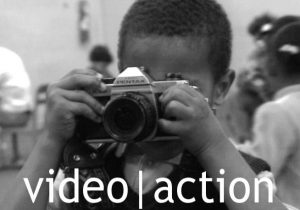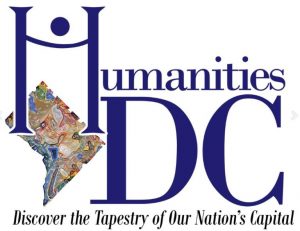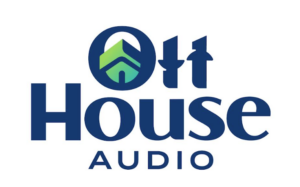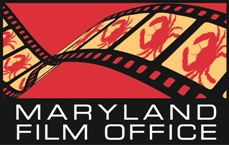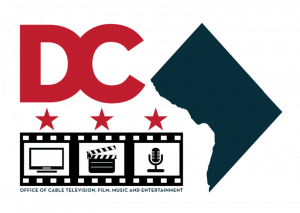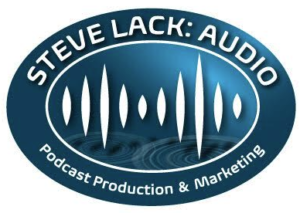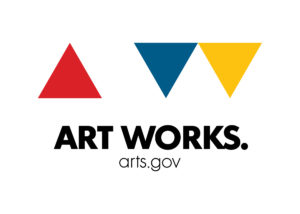If you have a filmmaking partner, you know how much of an asset it can be; you also know it’s not w/o its challenges.
By Claude LaVallee
Moderator: Katy Chevigny, Co-Founder and Senior Director, Arts Engine
Panelists:
Rob Fruchtman, Filmmaker, Sweet Dreams
Lisa Fruchtman, Filmmaker, Sweet Dreams
Jason Mann, Filmmaker, Betting the Farm
Cecily Pingree, Filmmaker, Betting the Farm
___________________
I was particularly interested in this panel because, like many, I’ve collaborated on several projects with a fellow filmmaker – my boyfriend – and I wanted to hear how other filmmaking partners approach their collaborations. Did partnering help them make a better film? How did they deal with creative differences? Who did what and how did they split or share responsibilities – and credit?
All the panelists agreed that their films benefitted from their creative collaborations and that, given the challenges inherent in making a film, going through the experience with someone else, instead of alone, was a net plus. It also made them better filmmakers.
It is noteworthy that the members of each filmmaking team on this panel were related – Rob and Lisa are siblings, and Jason and Cecily are in-laws (Jason is married to Cecily’s sister). Being family and knowing they’d have to continue being around each other beyond the film, gave everyone added incentive to play fair. All the panelists were also already in the industry. Rob is a documentary filmmaker, while his sister Lisa has worked on many Hollywood features, and Jason and Cecily have, for a number of years, run a production company together. For both teams however, this was their first joint feature film project, so they had to figure out how to work together on a large project.
Who Does What?
Jason and Cecily spent a lot of time, especially in the initial stage of the project, clarifying their mutual roles. Because of their family relationship and their prior experience working on the road together on shorter projects, they’d already established considerable mutual trust, and were used to certain roles, but now they needed to learn to adapt their roles to a larger, more long-term project. On most shoots, Cecily was camera operator and Jason recorded sound. Cecily also did a lot of solo shooting and, occasionally, a third person recorded sound. For post, they hired an editor with whom they worked intensively for nine months.
For their part, Rob and Lisa said they did everything together. They went on their shoots together, with either Rob or a hired shooter operating the camera. For post, each had, on past projects, had the experience of working with editors who, often times, had had to referee between disagreeing filmmakers; they decided that, for this project, they would both edit the film. They each had a copy of all the media, and each watched the entire 200 hours of footage separately and repeatedly. They then handed each other scenes they’d cut, back and forth, which they would re-connect to media and work further on.
Office/Work Space: Separate or Together?
Jason and Cecily not only worked in the same space, they also shared a house for much of the production of this project. On top of that, they brought in their editor from Brooklyn to live and work with them for the duration of the edit.
Rob and Lisa, on the other hand, each live on opposite coasts – he in New York city, she, in the Bay Area – so, though they worked together on shoots, they edited separately and passed each other FCP projects with edited sequences for the other to reconnect, view and discuss over Skype. Lisa pointed out the importance of getting your technical set-up done properly from the start, which is always key, and even more so given that she and Rob were using cloned drives, so everything had to be exactly identical.
Dealing with Creative Differences
On Betting the Farm, Jason and Cecily were dealing with couples under stress and sometimes differed in their opinions about how to represent characters on-screen. For example, the characterization of the woman (Carly) in one of the couples, particular close in age to the filmmakers, was the topic of much discussion. When on-camera, Carly was consistently very emotional, but Cecily felt strongly that wasn’t representative of her person as a whole since, when not on-camera, she was much less emotional. Cecily felt as though being on-camera was a kind of emotional outlet valve for Carly. Jason freely admits that Cecily was more emotionally attuned to this kind of phenomena and sometimes deferred to her judgment in editing decisions regarding Carly’s “character.” Cecily, for her part, said she had to let go of some stuff. For example, she had to accept that Carly, in her fight to save her family, was very emotionally affected by the situation and that was a reality that had to be conveyed on-screen.
In post, they also found it helpful to occasionally get the opinion of a third party, someone beholden to neither of them so as to remove any loyalty issues that could interfere with giving an honest opinion.
The filmmakers laughed that, Jason’s wife (Cecily’s sister) is a politician, which came in handy when the need for mediation arose.
On Sweet Dreams, though Rob and Lisa both have a rich background as filmmakers, Lisa was surprised at the differences in their sensibilities and approaches, and they both felt that, had they worked independently on this film, it would have resulted in two very, very different films.
Lisa noted how Rob’s experience as a documentarian had taught him to just “hang out,” as she put it, in anticipation of a certain shot he sensed would happen, eventually, while she was impatient to move on when something wasn’t happening right away. For example, on one particular shoot, they saw monks, dressed in full robe, riding by on bicycles, and wanted to capture one on film. They aimed their camera at a bicycle rack and got a monk riding off. Lisa was satisfied with that and wanted to move on but, she said, Rob pointed out that eventually that monk was going to come back and they could get a better shot… He convinced her to wait it out and, hours later, that monk did come back; that’s the shot that ended up in the film.
In post, since Rob and Lisa didn’t work with an editor, they didn’t have that third voice so, when they disagreed, they had to duke it out. This healthy disagreement forced them to defend their ideas, which ultimately made for stronger decisions and a better film. They emphasized that, for this type of discussion to be productive, you have to leave your ego at the door; it’s about what’s best for the film.
Like Jason and Cecily, Rob and Lisa also found it useful to hold screenings for third parties, which, in their case, revealed the distinctly different sensibilities of audiences on either coast.
Gender in Filmmaking Partnerships
It was interesting that both filmmaking teams on the panel, in addition to being family, were also each male/female. Also interesting, was that neither man felt gender made much of a difference, but both women, especially Cecily, felt it did.
Lisa, who has edited mostly for men, felt that people bring their life experience to making a film, including their experiences as male or female. She also noted, with some amusement, that she and Rob had used their film’s characters’ attraction to Rob to their advantage on their shoots.
Cecily felt that, as a woman, she was more sensitive to women appearing stereotypically “emotional” on film. She was adamant that female characters reflect who they were in real life and not be emotionally skewed for dramatic effect.
Project Ownership
In addition to figuring out who does what, one of the most contentious challenges of partnering on a film project is determining who has final say. Good communication skills and having a stake in seeing both the film and the relationship being successes were important to both of these teams.
All panelists expressed that, though division of roles (“you’re the producer, I’m the director”) may seem convenient, particularly at the beginning of a project, having equal say and shared decision-making authority on the final film is important; it affects the degree and quality of emotional commitment and dedication to the project. A formal contract about the specific nature of the collaboration can also be required by certain foundations like ITVS, and, certainly, having a detailed discussion about it can prevent a lot of misunderstandings down the line. This can be important even for filmmaking partners who have family incentive to get along.
Jason and Cecily came upon this story while working on a commissioned project together and knew, instantly, there was a bigger story there, so they were both equally committed to the project from the onset, and equally share in its ownership.
In the case of Sweet Dreams, Lisa brought the project to Rob before she went very far with the idea on her own because, though she’d built her career on Hollywood fiction films, he was an experienced documentarian. At first, he was dubious of the idea and it took him a while to warm up to it. When he did agree to move forward with Lisa, they each committed $15,000 in a bank account for the project, then they got on a plane. Once he set foot in Rwanda, Rob said he really plunged in. See Sweet Dreams trailer here.
Characteristics of Successful Filmmaking Partnerships
*They have complimentary skills, and compatible likes
*Partnerships can take many forms: co-directors, producer/editor, director/producer…
*Being able to listen and seriously consider the other person’s point of view
*Playing fair, and knowing how to negotiate well
Pay-offs of Filmmaking Partnerships
*It forces you to think through your ideas and strengthen them in order to legitimately defend them.
*Two can get more done than one.
*Your co-director brings ideas you never would have had.
*Filmmaking can be terrifying at times, so it’s great to have a partner and not be going through it alone.




